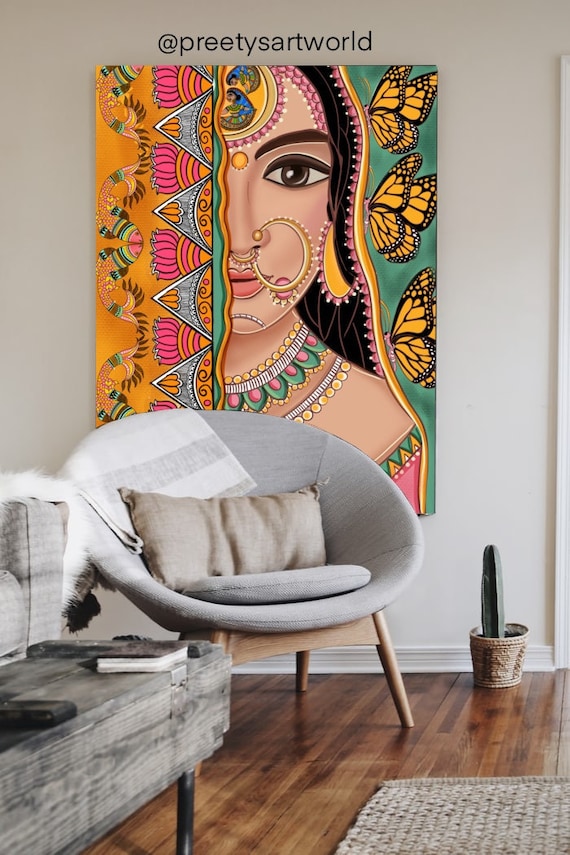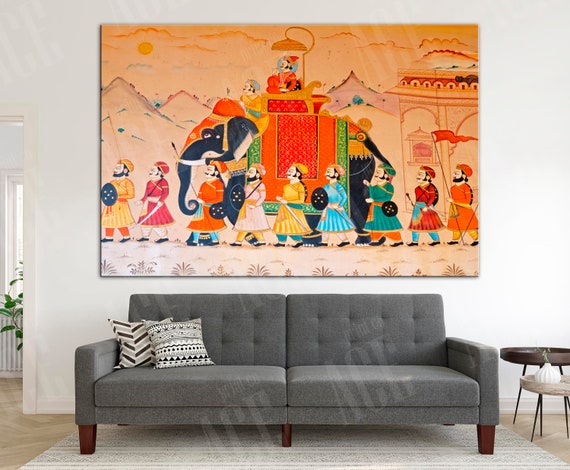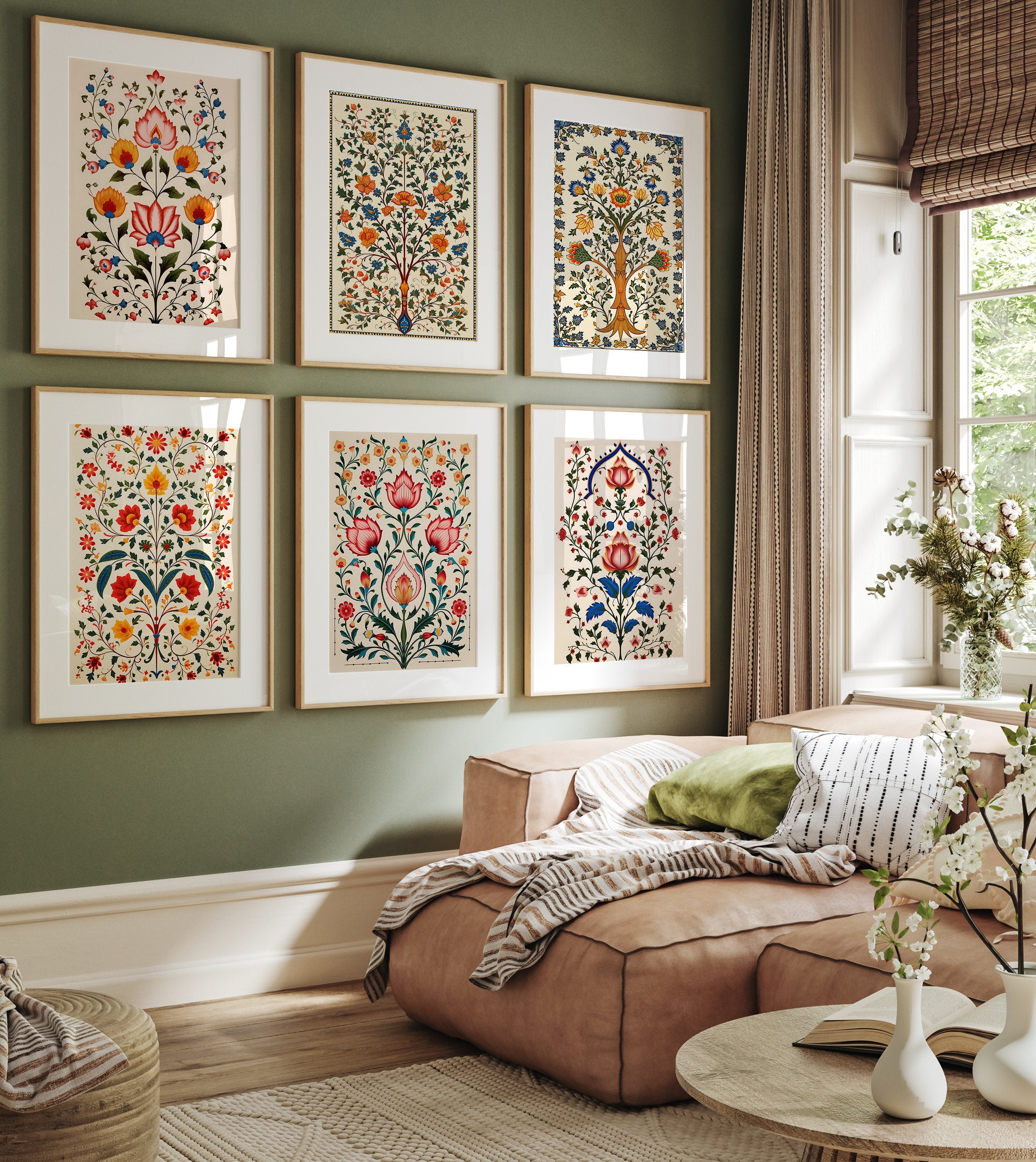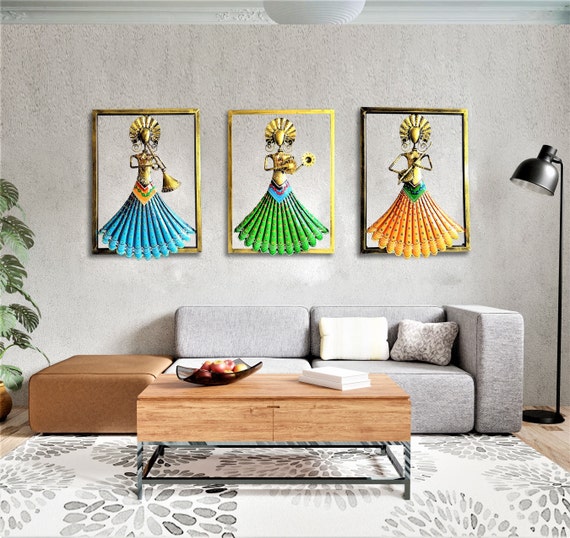Indian art wall decor is more than just decoration; it’s a celebration of tradition, culture, and craftsmanship. In this extensive guide, we’ll explore the various forms of Indian art wall decor, their significance, how to choose pieces that reflect your personality, and tips on displaying them effectively in your home.
The Allure of Indian Art Wall Decor
As someone who has always been captivated by the beauty of cultural art forms, I can attest to the unique charm that Indian art brings to a space. The vibrant colors, intricate designs, and deep-rooted stories behind each piece instantly transport you to the heart of India’s rich heritage. Let’s dive deeper into what makes Indian art wall decor so special.
Diverse Forms of Indian Art Wall Decor
Indian art is incredibly diverse, reflecting the various regions, cultures, and histories across the country. Here are some popular forms of Indian art that can be beautifully displayed on your walls:
- Madhubani Paintings
- Warli Art
- Pattachitra
- Miniature Paintings
- Tanjore Art
- Rajasthani Miniatures
- Traditional Tapestries
- Wall Hangings
Understanding the Significance of Each Art Form
Madhubani Paintings
Madhubani art originates from Bihar and is characterized by intricate patterns and vibrant colors. Traditionally created by women, these paintings often depict nature, mythology, and folklore.
Warli Art
Warli is the tribal art from Maharashtra, known for its simple yet powerful depictions of daily life and nature using geometric shapes. It’s a fantastic way to bring a rustic, earthy feel to any space.
Pattachitra
Pattachitra, originating from Odisha, features mythological narratives and intricate detailing. The stories behind these artworks make them a great conversation starter.

Miniature Paintings
These detailed paintings capture historical scenes and royal heritage, beautifully illustrating India’s rich history and culture.
Tanjore Art
Tanjore paintings, with their rich colors and gold foil embellishments, evoke a sense of opulence and are often religious in nature.

Rajasthani Miniatures
Famous for their vivid colors and fine details, Rajasthani miniatures capture the splendor of royal life and wildlife.
Traditional Tapestries and Wall Hangings
These textiles not only decorate your walls but also add warmth and texture to your space, perfect for a cozy vibe.

How to Choose the Right Indian Art Wall Decor
Choosing the right piece of art can be overwhelming, especially given the variety available. Here are some tips to help you make an informed decision:
Consider Your Space
Take into account the size and color scheme of the room. A large, vibrant Madhubani piece can serve as a stunning focal point in a neutral room.

Reflect Your Personality
Your art should represent you. Whether you enjoy the simplicity of Warli art or the richness of Tanjore paintings, select pieces that resonate with your personality.
Understand the Cultural Context
Knowing the story and background of the art can enhance your appreciation and the narrative you share with guests.

Displaying Indian Art Wall Decor
Once you’ve chosen your pieces, the next step is display. Here are several ideas to effectively showcase your Indian art wall decor:
Gallery Wall
Create a gallery wall by grouping different art forms together. This can create visual interest and tell a story.
Framing
Invest in quality frames that complement the artwork. For traditional art, ornate wooden frames add a touch of elegance.

Placement
Consider the height and lighting. Art should be at eye level and well-lit to appreciate the details.
| Art Form | Ideal Placement | Suggested Frame Style |
|---|---|---|
| Madhubani | Living Room | Wooden Frame |
| Warli | Entryway | Simple Black Frame |
| Pattachitra | Hallway | Ornate Frame |
| Tanjore | Bedroom | Gold Leaf Frame |
Pros and Cons of Indian Art Wall Decor
Pros
- Rich cultural heritage and storytelling.
- Unique pieces that can’t be replicated.
- Enhances the aesthetic appeal of any room.
- Wide variety to suit different tastes and styles.
Cons
- May require special care and maintenance.
- Some pieces can be expensive depending on the artist and materials used.
- Authenticity concerns with some mass-produced items.
Personal Experiences with Indian Art Decor
In my own journey, I’ve curated a small but meaningful collection of Indian art for my home. Each piece has its own story—my Madhubani painting captures the spirit of the monsoon season, while a Warli piece echoes the simplicity of rural life. These artworks not only beautify my walls; they also evoke memories and feelings that resonate with me daily.
FAQs about Indian Art Wall Decor
1. What is the best way to care for Indian art wall decor?
Regularly dust your art with a soft cloth and avoid exposure to direct sunlight to prevent fading.
2. How can I tell if an Indian art piece is authentic?
Research the artist or workshop, and look for certifications or tags indicating authenticity.
3. Where can I buy Indian art wall decor?
Indian art can be found in local art galleries, online art marketplaces, and directly from artisans.
4. Can I mix different styles of Indian art in one space?
Absolutely! Mixing styles can create a wonderfully eclectic look; just ensure they complement each other in color and theme.
5. What size of Indian art should I choose for a small room?
In a small room, consider going for a smaller piece or a series of smaller artworks to create a gallery effect without overwhelming the space.